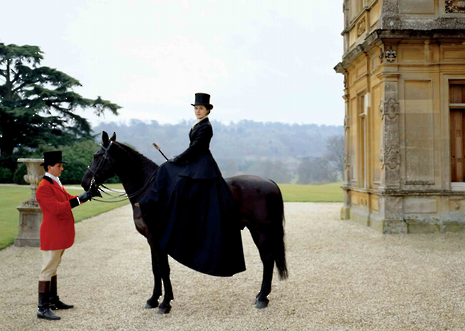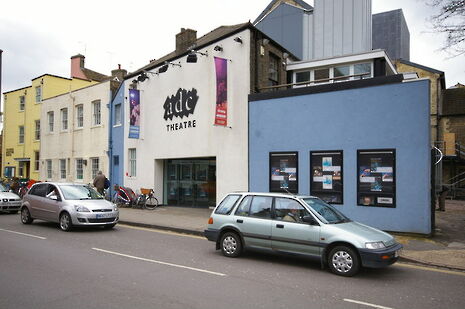The troubling lack of ethnic diversity on British television
Arenike Adebajo explores the under-representation of BME figures on British television and what still needs to be done

British television’s main export is nostalgia, with homages to the grittiness of post-war life and the ‘golden age of Empire’ – think Call the Midwife and Victoria. This appetite for an England that is firmly in the past has always made me vaguely nauseous, more so now in a post-Brexit climate, with a government that is increasingly hostile to multiculturalism. Currently, television creates a very narrow definition of Britishness that does not reflect the reality of the colourful hybridity I know. Where are the first-generation Nigerians who eat fish and chips for lunch then jollof rice for dinner? Why does no one on TV have an adolescence sound-tracked to bhangra or dancehall rather than the Arctic Monkeys? Why are black girls perpetual sidekicks instead of show leads? If the message that television broadcasts to society is to be believed, Britishness equals whiteness.
Unsurprisingly, television analysts Attentional have found that prime time dramas and sitcoms popular with white audiences underperform with minority groups. According to their CEO, David Graham, “members of minority ethnic groups do not identify themselves in many of our most-watched narratives”. The problem of representation extends beyond period dramas. Complex and fleshed out roles for BME (Black and Ethnic Minority) actors are few and far between, and there are even fewer opportunities to be cast as a show’s lead. This has prompted a flight of talent to the US where work is more readily available. David Harewood, who starred in the hit US thriller Homeland, only got the breakout role after spending more than a year out of work in Britain. There is a stark difference between the career trajectories of white and black actors in the UK, regardless of the similarities in their early working years. James McAvoy and Naomie Harris both starred in the Channel 4 adaptation of Zadie Smith’s novel White Teeth in 2002. Both went to drama school – Harris is also a Cambridge alumna – and had a few credits in other minor television dramas. Yet within five years, McAvoy had landed lead roles in the critically appraised films The Last King of Scotland and Atonement while Harris was still only barely registering in the US after a supporting role in the Pirates of the Caribbean franchise. She only really registered in the British consciousness after she was cast as Miss Moneypenny in the 2012 Bond film, Skyfall. Harris’s experience cannot be dismissed as a matter of a lack of merit; the pattern repeats itself with Thandie Newton, John Boyega, Idris Elba, Sophie Okonedo, David Oyelowo, Chiwitel Ejiofor and many other black actors, who only find their Britishness embraced after finding success in the US.
Lenny Henry has been a passionate advocate for more representation on the British screen for years now. Astutely, he points out that the problem also lies with diversity behind the camera. The number of BME people working in the British film and television industry fell from 7.4 per cent in 2009 to 5.4 per cent in 2012, with the number still in decline. Without investment in providing the access and opportunity that will give talented BME creatives access to the infrastructure and resources needed to break into the mainstream, there is little hope for the current state of affairs changing. The problems British television is facing with representation have clear parallels in other areas of the arts. Take Cambridge’s own ADC. Writers, producers and directors of shows in Cambridge are overwhelmingly white and, as a result, so are the casts. BME friends have said that auditioning is a stressful and demoralising process because directors, unconsciously or not, seem to have a certain ‘type’ in mind when casting: i.e someone not Asian, black or brown and probably someone who has worked with them on other productions. Alternatively, they find themselves typecast in roles that do little more than peddle stereotypes. The rare productions that specifically call for BME actors, like the upcoming Teahouse, which has an entirely East Asian cast, are a breath of fresh air, but have an uncertain chance of success at the box office.

The implication of a lack of representation on the screen is that black and minority actors do not have the same claim to universality as white actors. Most diversity we see in casting comes from BME actors being part of an ensemble cast: think Misfits, Humans and Utopia. Predominantly white casts have been established as the default, and minorities have been expected to see themselves in these shows for years. However, white audiences seem to be unable to make the same leap, unless the actors are conforming to comfortably worn stereotypes. Channel 4’s gang drama Top Boy and the BBC crime-drama series Luther are two critically praised television shows with black male leads. Both are gritty, set in East London and rife with drug wars, gangs, violence and permeated with hyper masculinity. While this summary glosses over complexities in character development and plot, the two shows are generally dealing with certain views about black men that perpetuate damaging stereotypes. Contrast this with Kayode Ewumi’s gloriously funny Youtube hit #HoodDocumentary, which offers a different take on black masculinity. It’s an intelligent send up of the macho posturing of the grime world without a whiff of respectability politics. The endearing RS, real name Reece Simpson, is an aspiring rapper who proudly displays all the trappings of the sub-culture. He’s also a hopeless romantic and chronically insecure. Further episodes developed with the BBC didn’t have the same spark as the original, but Ewumi’s success is an indicator of what can be achieved when talented black creators can leverage their own platforms.
The best shows are those that do not tell a single story, but showcase the multitude of difference within the black experience. This autumn, a new wave of black-centred shows in the US have joined the ShondaLand empire in finding significant crossover success with white audiences. Ava DuVernay’s Queen Sugar, Issa Rae’s Insecure, Donald Glover’s Atlanta and Cheo Coker’s Luke Cage have stormed the airwaves, and the landscape of US television will never look the same again. The richness, nuance and complexity of the characters in these shows, particularly the black women, is striking, and a result of primarily black writing rooms and black creators. While British television is yet to catch up, there have still been flashes of brilliance. Michaela Coel plays the main character in her quirky new show, Chewing Gum, and there is something glorious about seeing a dark-skinned black girl having the space to her sexuality without judgement. Bim Adewunmi has written about why Undercover is one of the most important dramas on British television, in its quiet insistence of the normality of an upper-middle-class black family. There’s talk that Cecile Emeke’s web series Ackee and Saltfish, a warm-hearted comedy about two best friends living in London, is in development for a show with the BBC. E4’s upcoming show Crazyhead is sizing up to be one of the best new releases of the year. The new comedy-horror is Broad City meets Buffy and will see Susan Wokoma battle demonic teens with her co-star Cara Theobold.
There are so many more stories that need telling on British television: the stories of queer people of colour, the state of mental health in our communities and wider explorations of tensions within Black-British identities and much more. Although progress within the traditional establishment is slow, what has changed is the ability of creators such as Ewumi and Emeke to harness the power of the internet and start creating their own content to be distributed online. In podcasting, in journalism with publications like gal-dem and in the underground music scene, similarly exciting things are happening. The message from black creatives is clear: if we can’t get a seat at the table, we’ll build our own
 News / Police to stop searching for stolen Fitzwilliam jade17 April 2024
News / Police to stop searching for stolen Fitzwilliam jade17 April 2024 News / Copycat don caught again19 April 2024
News / Copycat don caught again19 April 2024 Interviews / ‘It fills you with a sense of awe’: the year abroad experience17 April 2024
Interviews / ‘It fills you with a sense of awe’: the year abroad experience17 April 2024 News / Night Climbers call for Cambridge to cut ties with Israel in new stunt15 April 2024
News / Night Climbers call for Cambridge to cut ties with Israel in new stunt15 April 2024 News / Acting vice-chancellor paid £234,000 for nine month stint19 April 2024
News / Acting vice-chancellor paid £234,000 for nine month stint19 April 2024




